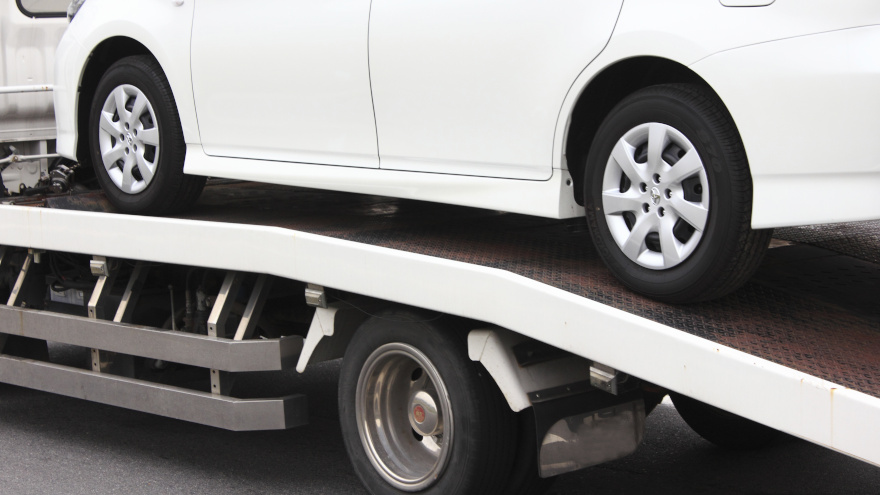COMMENTARY: 6 strategies to reduce transportation costs

By subscribing, you agree to receive communications from Auto Remarketing and our partners in accordance with our Privacy Policy. We may share your information with select partners and sponsors who may contact you about their products and services. You may unsubscribe at any time.
The used-car market seems simple enough: buy vehicles and sell them for more than you paid.
However, any seasoned general manager, inventory buyer, or used-car specialist knows that there are several factors between those transactions that can tip the scales toward profitability or debt.
Unlike new-vehicle inventory, which arrives at the dealer lot by the truckload, used vehicles are often purchased individually. Each car requires its own logistics and transport, and while it’s sometimes overlooked or seen as a necessary investment with little to no return, cargo transportation can heavily impact a dealership’s bottom line.
Moving vehicles around the country can add up quickly, limiting buying range and adding expenses to an already tight budget — but it doesn’t have to be that way. In fact, designing affordable cargo transport strategies should play a significant role in inventory management.
To capitalize on this hidden profit opportunity, consider incorporating these six money-saving strategies into your business model:
- Negotiate with Suppliers
Carriers and third-party logistics companies are more open to negotiating prices than many dealers assume. This is particularly true when establishing long-term partnerships or contracts. Analyze your current supplier relationships to ensure they meet your service expectations and respectfully engage in discussions about negotiated shipping rates. When ordering transport for several vehicles, ask about a multi-car discount.
Subscribe to Auto Remarketing to stay informed and stay ahead.
By subscribing, you agree to receive communications from Auto Remarketing and our partners in accordance with our Privacy Policy. We may share your information with select partners and sponsors who may contact you about their products and services. You may unsubscribe at any time.
- Price Shop
It’s easier now than ever before to compare prices between suppliers across markets and company size. Don’t assume that the largest vendors are also the most cost-effective. Remember to look beyond the price and consider the company’s reputation for service. That’s often where the real value is found, especially when needs change quickly.
- Embrace Sustainable Options
Electing to employ eco-friendly transportation options not only reduces your brand’s environmental impact but can also lead to savings through lower fuel costs. Consider using electric and hybrid transport trucks for deliveries on local routes.
Bonus: Business owners might qualify for tax credits when installing on-site EV charging infrastructure.
- Know Your Inventory
It seems obvious, but many dealers don’t truly understand how their assets are helping or hindering them. Do you know where your inventory is and when it will arrive? Is it where it needs to be? Efficiently managing transportation logistics can be the key to reducing holding costs and maximizing sales potential.
- Leverage Transportation Management Systems
Digital platforms can accelerate a dealer’s ability to diversify their inventory and decrease cycle time. Monitoring your vehicle shipments in real time allows you to track transportation costs, optimize spending, and centralize the metrics across multiple rooftops. This will help you streamline your inventory management. These platforms can also often forecast transportation costs and provide a level of data transparency to help identify cost-saving strategies.
- Reevaluate Constantly
When contracts are in place and routines are set, maintaining the status quo can be easy. However, enhancing profitability means prioritizing data-driven decisions. Set quarterly or monthly meetings to review delivery times, vehicle conditions, and rate-per-mile costs.
Consider how dynamic pricing or real-time unit tracking could contribute to the bottom line and how changes could translate to even higher customer satisfaction rates. Properly sourced data doesn’t lie. Gather the essential metrics and allow the data to guide you toward the right strategies.
Lower transportation costs mean higher margins and more money to reinvest in your dealership. In the competitive world of auto retail, reducing costs may require a detour from business as usual for many dealers. The extra effort is worth it — a tailored cargo transportation strategy effectively boosts profitability and ultimately improves your company’s bottom line.
Mike Trudeau, executive vice president of business development at Montway Auto Transport


